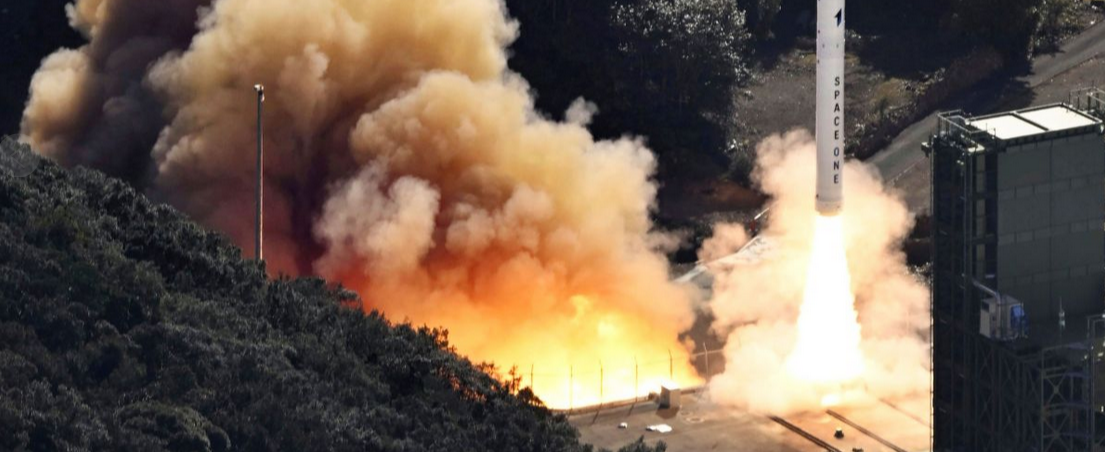A Japanese space startup said its second attempt to launch a rocket carrying satellites into orbit had been aborted minutes after liftoff Wednesday and destroyed itself again, nine months after the company’s first launch attempt ended in an explosion.
Space One’s Kairos No. 2 rocket lifted off from a coastal site in the mountainous prefecture of Wakayama in central Japan.
The company said it had aborted the flight after concluding that it was unlikely to complete its mission.
“We are very sorry that we could not achieve as far as a final stage of the mission,” Space One President Masakazu Toyoda told a news conference Wednesday. “We don’t consider this a failure because we are getting valuable data that will help our pursuit toward a next challenge.”
He said he hoped to find the cause to address the problems as soon as possible to achieve a success next time.
Company executive and space engineer Mamoru Endo said the abnormality in the first stage engine nozzle or its control system is likely to have caused an unstable flight of the rocket, which started spiraling in midflight and eventually destroyed itself about three minutes after liftoff, using its autonomous safety mechanism.
The rocket, which rose higher than 100 kilometers (60 miles) above ground, entered space entered space before it was destroyed, officials said.
Space One aims to be Japan’s first company to put a satellite into orbit, hoping to boost Japan’s lagging space industry with a small rocket for an affordable space transport business.
Wednesday’s flight, postponed twice from Saturday because of strong winds, came nine months after a failed debut flight in March, when the rocket was intentionally exploded five seconds after takeoff. The flight was carrying a government satellite that was intended to monitor North Korea’s missile launches and other military activities.
Kairos No. 2 rocket was carrying five small satellites, including one from the Taiwanese space agency and several from Japanese startups.
Space One said it had fixed the cause of the debut flight failure, which stemmed from a miscalculation of the rocket’s first-stage propulsion.
Japan hopes the company can pave the way for a domestic space industry that competes with the United States.
Tokyo-based Space One was set up in 2018 with investments from major Japanese companies, including Canon Electronics, IHI, Shimizu and major banks, to commercialize space delivery services at lower costs and regular flights as many as 20 times a year, compared to six currently planned by the government-led space program.
Japan’s space development programs are led by Japan Aerospace Exploration Agency, or JAXA, and industry leaders such as Mitsubishi Heavy Industries and IHI, as they develop two main flagship rockets, the large H3 rocket and the much smaller Epsilon, to cater to the growing satellite transport business.
